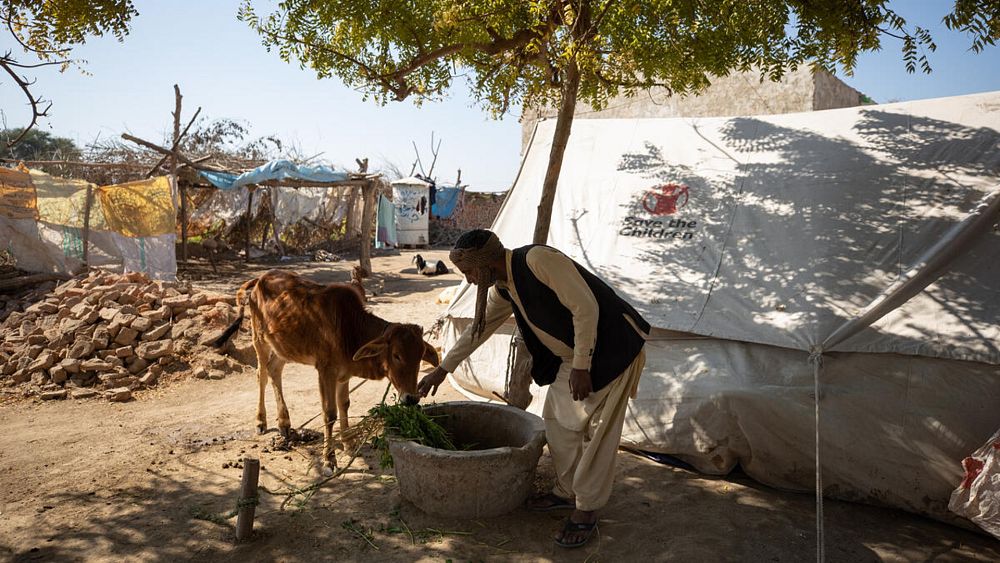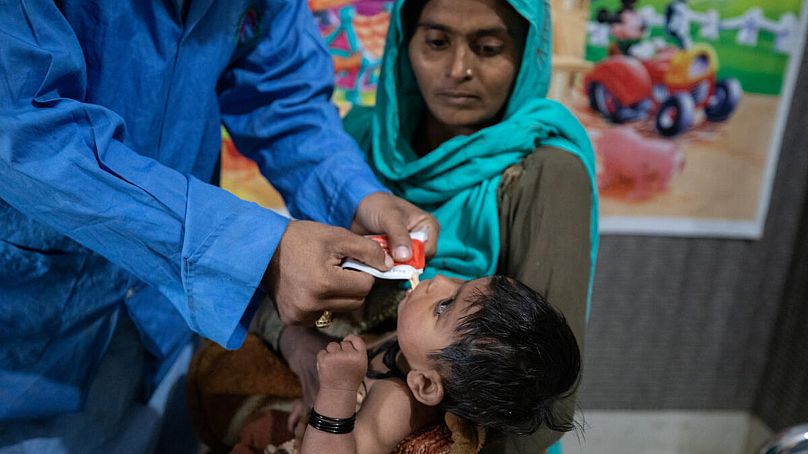
Six months after widespread flooding submerged a third of Pakistan, people are still struggling to survive.
Inflation has sent the price of food skyrocketing and families, especially, are being forced to cut back on their meals. Doctors are reporting increased cases of malnutrition, according to Save the Children.
Many are still living in tents around stagnant water and surviving on just one meal a day, the charity says.
“This is one of the biggest disasters this country has ever seen, and after six months, we are still suffering,” says Khuram Gondal, charity Save the Children’s country director for Pakistan.
“These devastating floods are an acute example of how those living in a country responsible for less than 1 per cent of global carbon emissions are seeing their lives completely turned upside down by the climate crisis.”
Gondal adds that, as with many disasters, children are bearing the brunt of the impact.
Just this week, Pakistan’s foreign minister Bilawal Bhutto Zardari said the flooding was “the biggest, most devastating climate catastrophe that we’ve ever experienced.”
And, at the time of the flooding, Prime Minister Shehbaz Sharif warned that “what happened in Pakistan will now stay in Pakistan.” He called the country the “ground zero of climate change”.
Pakistan: Cases of malnutrition are rising
Communities in Sindh province affected by the floods have told Save the Children staff they are barely surviving due to agricultural land being ruined. It is the main income source for most families in the area.
Hajra lives in a tent with her husband and three children as their house is still damaged by stagnant flood water. Her husband barely earns enough money to buy food for one meal a day for the family as a daily wage labourer.
“We had nothing to eat during the rains, and no milk for the children. It was difficult for us to eat the food as our children start crying when they see us eat, so we fed them what we had,” she says.
“There was nothing left to eat for my husband and me. What should we do? Eat and see our children crying and hungry?”

Her 10-month-old baby has developed severe acute malnutrition due to a lack of food as Hajra was weak, sick and couldn’t breastfeed.
She brought him to a healthcare unit run by Save the Children where he was treated and has since improved. The doctor who treated her son, Dr Muhammad Hanif, says that the percentage of children arriving at his clinic with malnutrition has increased from 20 per cent to 60 per cent.
“All the produce that people had from their fields also drowned in the floods so people have absolutely nothing to eat.”
What can be done to help people in Pakistan?
Around 33 million people — 16 million of them children — are still in need of help. The UN’s Pakistan Floods Response Plan is just 36 per cent funded more than halfway through its nine-month duration.
Save the Children is calling on the international community to step up and deliver the money needed to prevent a full-scale hunger crisis.
“When will the world listen to these children?” Gondal says.
“We welcome the fact that some steps have been taken — but children in Pakistan need more, not only to rebuild from this catastrophe but also to know that in future, when they will inevitably bear the brunt of yet more climate disasters, the world will not look away.”
The charity is also calling for progress on an agreement made at last year’s COP27 climate summit to establish a Loss and Damage fund. Save the Children says that funds need to be clearly earmarked for climate disasters like the flooding in Pakistan as well as slow onset events like rising sea levels.
